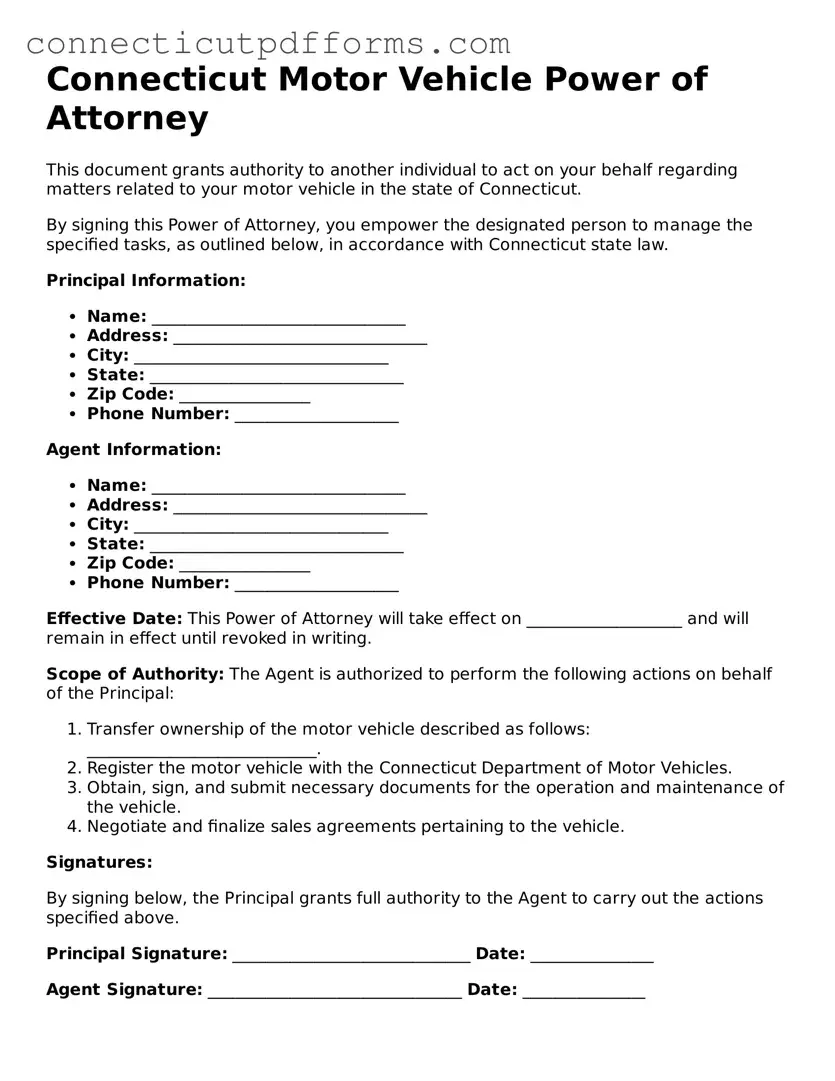The Connecticut Motor Vehicle Power of Attorney form is similar to a General Power of Attorney. Both documents allow an individual to appoint someone else to act on their behalf. However, while a General Power of Attorney can cover a wide range of financial and legal matters, the Motor Vehicle Power of Attorney is specifically focused on issues related to motor vehicles, such as registering a car or transferring ownership.
Another document that shares similarities is the Limited Power of Attorney. Like the Motor Vehicle Power of Attorney, a Limited Power of Attorney grants authority for specific tasks. In this case, the powers are restricted to a particular situation or time frame, making it clear that the agent can only act in defined areas, such as handling a vehicle sale.
The Durable Power of Attorney is also comparable. This document remains effective even if the principal becomes incapacitated. While the Motor Vehicle Power of Attorney is typically used for vehicle-related matters, a Durable Power of Attorney can cover a broader range of responsibilities, ensuring that someone can manage the principal's affairs if they are unable to do so themselves.
A Medical Power of Attorney is another related document. It allows someone to make healthcare decisions on behalf of another individual. While it does not deal with vehicles, both forms empower a designated person to act in the best interest of another. They are both crucial in ensuring that the principal's wishes are respected when they cannot make decisions for themselves.
The Revocation of Power of Attorney form is also relevant. This document is used to cancel a previously granted Power of Attorney. Just as the Motor Vehicle Power of Attorney can authorize someone to act on your behalf for vehicle matters, the Revocation form serves to terminate that authority when it is no longer needed.
Another similar document is the Authorization to Release Information form. This allows someone to access specific information, like vehicle records, on behalf of another person. While the Motor Vehicle Power of Attorney gives broader authority to act, this authorization is more limited and focused on information sharing.
For those looking to secure an edge in professional opportunities, understanding the importance of a well-crafted comprehensive Recommendation Letter for job applications cannot be underestimated. This form not only showcases a candidate's qualifications but also highlights their character through endorsements from trusted sources.
Lastly, the Bill of Sale for a vehicle has some parallels. While it is not a Power of Attorney, it is a legal document that facilitates the transfer of ownership. Both documents are essential in vehicle transactions, ensuring that all parties involved have clear records of ownership and authority.

